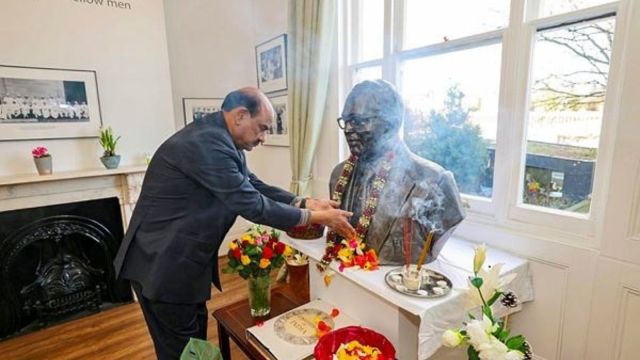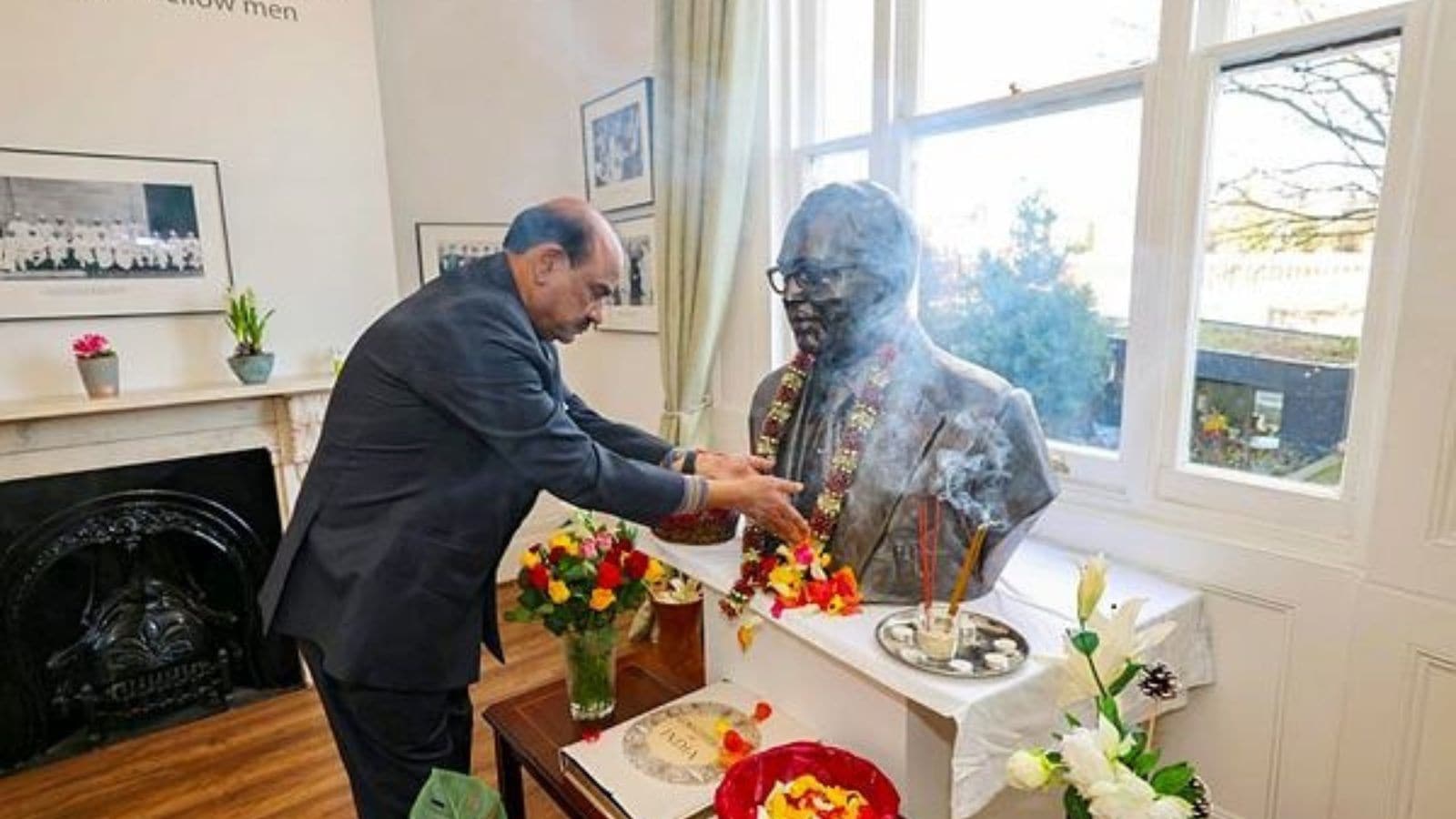

N Sukumar
Jan 10, 2025 15:39 IST First published on: Jan 10, 2025 at 15:36 IST
It was December 27, 2024. In Fatehpur, Uttar Pradesh, a 47-year-old Dalit man Shivbadan was allegedly beaten, abused and paraded with his head shaved by a group of men who accused him of “converting people to Christianity”. According to reports, he was dragged to a temple, and the crowd forced him to recite “Hanuman Chalisa”. On the same day, in Jagatsinghpur district of Odisha, two Dalit men were “brutally assaulted”, tonsured and garlanded with slippers for allegedly “stealing goats”.
Interestingly, these incidents happened 10 days after the Union home minister committed a faux pas in Parliament while invoking Ambedkar’s name, sparking protests. The battle lines were clearly drawn between the ruling and opposition alliances. This is ironic, given the ambivalence towards Ambedkar from many of these groups.
After Independence, with the focus on social welfare and the development agenda, it was assumed that caste would wither away. However, in every election, appeals were these identities to win votes. This phenomenon has intensified in the last decade along with the increased visibility of Dalit icons. RSS ideologues emphasise social harmony, celebrating various anniversaries of Dalit intellectuals but are silent on issues of justice, social democracy and fraternity. At one level, the political visibility of Ambedkar has increased with calls for social unity — “ek hai toh safe hai” — but in reality, atrocities on SCs/STs and OBCs are increasing both in rural and urban areas.
Unequal Citizens
Decades ago, Ambedkar told Gandhi that “he has no homeland”, and his words have proved to be prophetic. When SC/ST and OBC students face discrimination in academia and commit suicide in elite institutions, is it not a denial of their basic rights? More than 13,600 students belonging to the SC/ST and OBC communities have dropped out from higher educational institutions such as the Indian Institutes of Technology (IIT), Indian Institutes of Management (IIM) and central universities over five years.
The duplicity of the administration’s response seems evident if one contrasts the Delhi December 2012 gangrape and murder case with the Hathras incident. The then Congress leaders were compelled to send the Delhi victim to Singapore for treatment and even went to the airport to receive her body whereas the state cremated the Dalit victim of Hathras in secrecy without informing her family.
All the major states are equally guilty, regardless of party affiliations, of not preventing heinous crimes against Dalits, as reflected in the NCRB data. The NCRB report shows that a total number of 57,582 cases were registered for crimes against SCs in 2022, a jump of 13.1 per cent from the previous year. For the STs, the increase was 14.3 per cent. Notably, these are just the reported cases. The state continues to be silent even when 377 people died due to the hazardous cleaning of septic tanks and toilets sewers, between 2019-2023 across states/UTs. There have also been efforts to dilute the Scheduled Castes and Scheduled Tribes (Prevention of Atrocities) Act (1989) to protect the interests of the dominant communities.
Freebies and the rights-bearing citizen
The Ambedkarite project was meant to transform Indians into right-bearing citizens. It is now completely derailed. For the state, the easy option is to distribute cash/food grains/other amenities in the form of subsidy. The idea is to keep the SC/ST/OBC voters happy and in return, a mandate is ensured. The beneficiaries or the labharthi will not question the entrenched “varna” system. The pyramidical structure of society is kept intact, and rebellion is contained.
In the process, the agency of the citizen is compromised as issues of education, health or employment are never raised. The increasing privatisation of education and health means that these communities have limited access to these sectors. Dropouts from schools will lead to an entire generation being left illiterate and scuttle their chances for upward socio-economic mobility. India witnessed a 37 lakh drop in school enrolments in 2023-24, and one can easily comprehend the social identities of these dropouts. There is no discussion on official forums on the SC/ST Special Component Plan (now, the SCSP), which was to ensure financial provisions for infrastructure, skill development and income generation for these communities.
most read
Politics of Representation
The entire idea of political representation is that it can protect the interests of various communities. However, the project has degenerated into mere tokenism. The opportunistic posturing to gain political power weakened the support base of political parties who sought to represent SC/ST communities. In addition, these parties failed to put forth any agenda regarding socio-economic transformation or solutions towards ameliorating the problems of the marginalised. Apart from seeking votes based on a narrow conception of identity, they have no constructive programmes.
They have mortgaged their ideology and identity at the altar of power. The selective appropriation of Ambedkar reflects his emotional utility for political gains rather than any notion of social justice and welfare. For politicians, it might be fashionable to chant Ambedkar’s name but for the citizens, he remains a passionate beacon of hope for an egalitarian world.
The writer is a professor of Political Science at Delhi University. Views expressed are personal
Discover the Benefits of Our Subscription!
Stay informed with access to our award-winning journalism.
Avoid misinformation with trusted, accurate reporting.
Make smarter decisions with insights that matter.
Choose your subscription package


